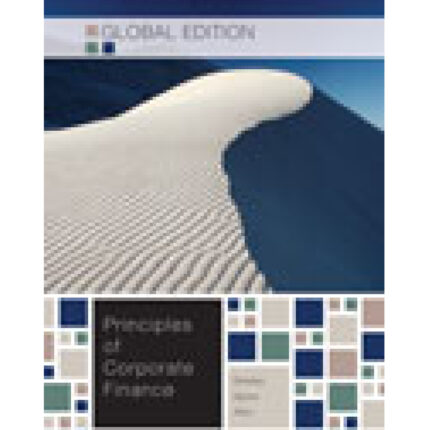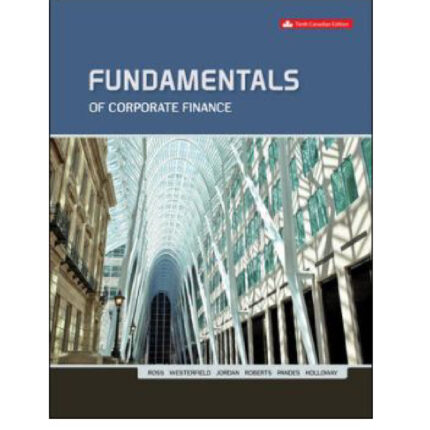Principles Of Managerial Finance 8th Edition By Chad J. Zutter – Test Bank
Chapter 11 Capital Budgeting Cash Flows and Risk Refinements
11.1 Project cash flows
1) Accounting figures and cash flows are not necessarily the same due to the presence of certain
non-cash expenditures on a firm’s income statement.
Answer: TRUE
Diff: 1
Topic: Relevant Cash Flows
Learning Obj.: LG 1
Learning Outcome: F-08
AACSB: Analytical Thinking
2) Relevant cash flows are the incremental cash outflows and inflows associated with a proposed
capital expenditure.
Answer: TRUE
Diff: 1
Topic: Relevant Cash Flows
Learning Obj.: LG 1
Learning Outcome: F-08
AACSB: Analytical Thinking
3) The relevant cash flows for a proposed capital expenditure are the incremental after-tax cash
outflows and resulting subsequent inflows.
Answer: TRUE
Diff: 1
Topic: Relevant Cash Flows
Learning Obj.: LG 1
Learning Outcome: F-08
AACSB: Reflective Thinking
4) Please explain the difference between a sunk cost and an opportunity cost and give an
example of each type of cost.
Answer: Sunk costs are cash outlays that have already been made (past outlays) and cannot be
recovered. Sunk costs have no effect on the cash flows relevant to the current decision. As a
result, sunk costs should not be included in a project’s incremental cash flows.
Opportunity costs are cash flows that could be realized from the best alternative use of an asset
that is already in place. They, therefore, represent cash flows that will not be realized as a result
of employing that asset in the proposed project. Thus, any opportunity costs should be included
as cash outflows when one is determining a project’s incremental cash flows.
Diff: 1
Topic: Sunk Costs and Opportunity Costs
Learning Obj.: LG 2
Learning Outcome: F-08
AACSB: Analytical Thinking
5) Incremental cash flows represent the additional cash flows expected as a direct result of the
proposed project.
Answer: TRUE
Diff: 1
Topic: Relevant Cash Flows
Learning Obj.: LG 1
Learning Outcome: F-08
AACSB: Reflective Thinking
6) The three major cash flow components include the initial investment, operating cash flows,
and terminal cash flow.
Answer: TRUE
Diff: 1
Topic: Major Cash Flow Components
Learning Obj.: LG 1
Learning Outcome: F-08
AACSB: Analytical Thinking
7) The three major cash flow components include the initial investment, nonoperating cash
flows, and terminal cash flow.
Answer: FALSE
Diff: 1
Topic: Major Cash Flow Components
Learning Obj.: LG 1
Learning Outcome: F-08
AACSB: Analytical Thinking
8) Initial cash outflows and subsequent operating cash inflows for a project are referred to as
________.
A) necessary cash flows
B) relevant cash flows
C) perpetual cash flows
D) ordinary cash flows
Answer: B
Diff: 1
Topic: Relevant Cash Flows
Learning Obj.: LG 1
Learning Outcome: F-08
AACSB: Analytical Thinking
9) Relevant cash flows for a project are best described as ________.
A) incidental cash flows
B) incremental cash flows
C) sunk cash flows
D) contingent cash flows
Answer: B
Diff: 1
Topic: Relevant Cash Flows
Learning Obj.: LG 1
Learning Outcome: F-08
AACSB: Analytical Thinking
10) Should financing costs such as the returns paid to bondholders and stockholders be
considered in computing after-tax operating cash flows? Why or why not?
Answer: Financing costs are not an incremental cash flow for capital budgeting purposes.
Financing costs are a direct consequence of how the project is financed, not whether the project
is economically viable. Financing costs are embedded in the required rate of return used to
discount project cash flows.
Diff: 1
Topic: Relevant Cash Flows
Learning Obj.: LG 1
Learning Outcome: F-08
AACSB: Analytical Thinking












Reviews
There are no reviews yet.